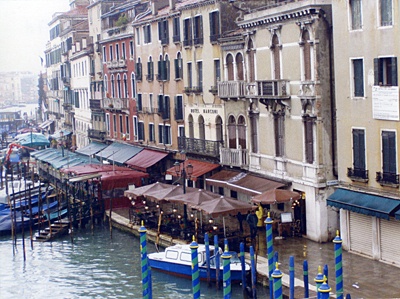All Nonfiction
- Bullying
- Books
- Academic
- Author Interviews
- Celebrity interviews
- College Articles
- College Essays
- Educator of the Year
- Heroes
- Interviews
- Memoir
- Personal Experience
- Sports
- Travel & Culture
All Opinions
- Bullying
- Current Events / Politics
- Discrimination
- Drugs / Alcohol / Smoking
- Entertainment / Celebrities
- Environment
- Love / Relationships
- Movies / Music / TV
- Pop Culture / Trends
- School / College
- Social Issues / Civics
- Spirituality / Religion
- Sports / Hobbies
All Hot Topics
- Bullying
- Community Service
- Environment
- Health
- Letters to the Editor
- Pride & Prejudice
- What Matters
- Back
Summer Guide
- Program Links
- Program Reviews
- Back
College Guide
- College Links
- College Reviews
- College Essays
- College Articles
- Back
Wanderlust MAG
Wanderlust is a rather vague emotion, a twinge in the back of your mind, a pang at the edge of your heart, but it is completely undeniable and can bring the most longing and the most satisfaction of anything I have ever felt.
It is a love for exploring, for learning, for seeing what you have never seen before. You yearn to see what thousands have seen before you, and to walk on soil that no one has touched in thousands of years. I believe that this very basic human disease is divided into two types.
An historian's wanderlust is for the past and based entirely on knowledge and the desire to connect with what you know. It is to see the vast expanse of time stretch out on the horizon, and just for a moment, feel that you were there. It is what drives archaeologists and historians, and to a baser extent, tourists. It is what keeps our civilization civilized, and what keeps our wise people wise - the realization that we are part of a long tapestry, and the absolute knowledge of what true wonder is. It is standing in the Forum Romanum, feeling the utterly solid stone under your feet, knowing that for centuries the Mediterranean world was ruled from where you stand, feeling the power that flows through the air about you - or more specifically, wanting to feel it desperately.
It is looking out over the English Channel toward the cliffs of Dover and seeing with the eyes of a nation on the brink of total victory - and realizing just how much it took to keep that little barrier of water impenetrable. It is staring into the valley of Thermopylae and hearing the Spartans' battle cries as they held the line for their culture. It is looking out at the Valley of the Kings and hearing a widow's cries as her husband is sent to meet Re. It is the desire to go to places where the course of human civilization has been changed irrevocably, to see these meccas of power, to take a handful of earth in your hand and feel history itself shiver down your spine.
An explorer's wanderlust is for the future and based entirely on the unknown and the desire to know it. The explorer's wanderlust drives the Magellans and Armstrongs of our world. Explorers' wanderlust is what pleads with you to go over that one last ridge before you pack up, to see one more thing you have never seen before you close your eyes. It holds much in common with ambition, I believe; explorers' wanderlust keeps our civilization vibrant and alive and expanding. It will be what drives us to Mars and beyond; will be what saves us when Earth can no longer be ours. Explorers' wanderlust is what strikes you when you look at the horizon, or into the stars, or at the clouds as they drift by. It is the desire for freedom, and for knowledge, and for the expansion of civilization.
We simply want to be unbound, to be and see and do what no one before us has, to perhaps have our names go down in history. It is to gaze across a vast rainforest, or an endless ocean, or down from a mountain peak, and to take a piece of earth in your hand and feel the future itself shiver up your spine.
The two can blend, if you sit and think enough at a turn in your journey. As you sit in the Temple of Karnak and contemplate the past, you begin to wonder if someone much like you will sit in the Washington Monument's ruins a thousand years from now and feel the same things you are feeling; as you gaze at the stars, perhaps seeing a planet here or a galaxy there through a telescope, you cannot help but wonder if someday someone will look back at Earth through a telescope and mutter, "So it all started there." And the future and the past will collide brilliantly somewhere near your thoracic vertebrae, and then you'll know exactly why this nigh indescribable feeling is called wanderlust.

Similar Articles
JOIN THE DISCUSSION
This article has 1 comment.
